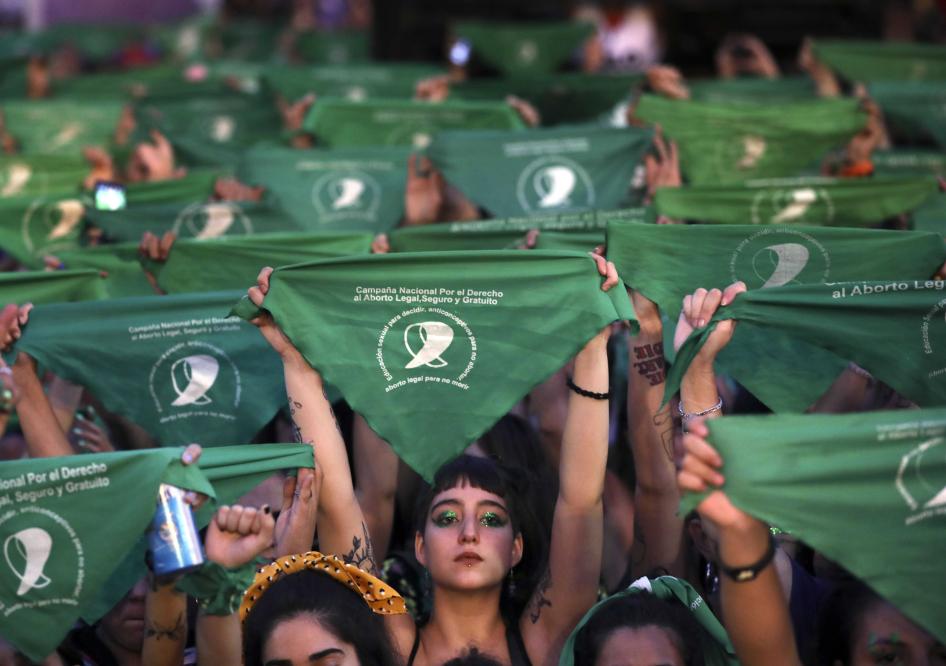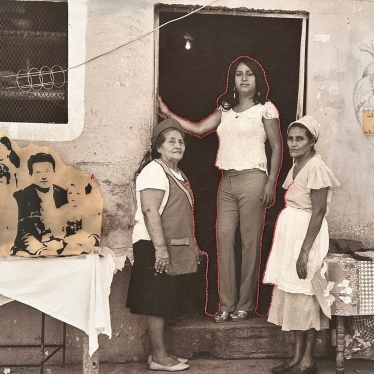As lawmakers in the Chamber of Deputies discuss an abortion bill sent by President Alberto Fernandez to Congress last month, Argentina has a new opportunity to comply with its international human rights obligations and to tackle a serious public health problem.
The bill would legalize abortion during the first 14 weeks of pregnancy—and later, if the pregnancy resulted from rape or threatened the person’s life or health, exceptions currently allowed under the Criminal Code.
The 2018 debate shed light on two facts that are now undisputed. The first is that penalizing abortion does not prevent it. In fact, people experiencing unwanted pregnancies seek access to abortion and post-abortion services even in highly punitive legal situations. The second is that abortion restrictions push them out of the national health system and into clandestine, unregulated settings. Many clandestine abortions are performed unsafely, leading to short- or long-term health problems, or even death.
A recent report by Human Rights Watch revealed that, in practice, even when those exceptions apply, many women and girls are still denied abortions, putting their lives and health at risk. Barriers include arbitrary gestational limits imposed by health facilities and lack of access to various medical and surgical abortion methods, including misoprostol pills. The stigma of criminalization and mistreatment by health professionals affects all women seeking abortions, even legal ones. Medical facilities lack effective referral systems to assist women when doctors invoke conscientious objection, causing excessive burdens and delays. This sends many who would be entitled to a legal abortion to resort instead to unsafe, clandestine procedures.
Criminalization of abortion entrenches inequalities. A woman’s resources, where she lives, even the medical facility where she routinely seeks care affect her ability to access abortion services. Vulnerable groups, including people living in poverty or in rural areas, and adolescents -- are the most likely to be driven to clandestine, unsafe, abortions.
To support pregnant people’s options, President Fernández also sent a separate bill to Congress that would provide economic assistance to vulnerable people and to their children for the first 1,000 days of a child’s life.
No international legal instrument explicitly references the right to have an abortion. However, authoritative interpretations of human rights treaties ratified by Argentina, including by the United Nations Human Rights Committee, the UN Committee Against Torture and the UN Committee on the Rights of the Child, have long established that highly restrictive abortion laws violate the human rights of women and girls, including their rights to life, to health, and not to be subjected to cruel, inhuman, and degrading treatment. Forcing a woman or a girl to continue a pregnancy in cases such as when the fetus has serious complications incompatible with life outside of the womb or the pregnancy was the result of rape is a form of inhuman and degrading treatment. Criminalizing abortion can force pregnant persons to complete a pregnancy, imposing overwhelming burdens that is incompatible with respect for their human rights.
Access to abortion is also a critical public health issue. In 2009, the National Health Ministry estimated that between 371,000 to 522,000 abortions are performed each year in Argentina. These figures continue to be used by the National Health Ministry, who has also concluded that, “in general,” abortions are performed under unsafe conditions. In 2016, public hospitals admitted around 40,000 women and girls for abortion complications. In 2018, the National Health Ministry reported 35 deaths from abortion, constituting 13 percent of maternal deaths.
This is not, and should not be, a debate about religious beliefs, personal anecdotes, or ideological views. By legalizing abortion, legislators would not push anyone to have an abortion. They would simply be ensuring Argentina complies with its international obligations and that no one is forced to suffer needlessly, especially among Argentina’s most vulnerable.









